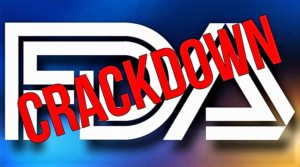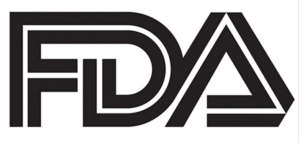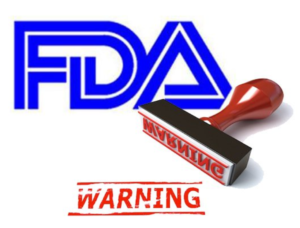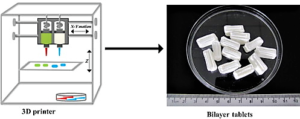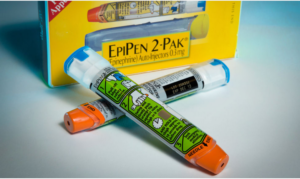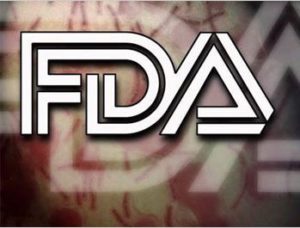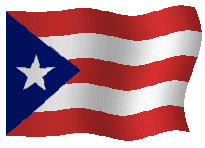- Agencies target ‘illegal, unapproved’ products that claim to treat opioid addiction (washingtonpost.com)
Federal regulators said Wednesday that they are cracking down on marketers and distributors selling a dozen products that “illegally” claimed to treat or cure opioid addiction and withdrawal...In letters sent earlier this month, the Food and Drug Administration and the Federal Trade Commission cited products that target people desperate to find relief from their addictions. They include “Opiate Freedom 5-Pack,” “CalmSupport” and “Soothedrawal.” Most of the 12 items are marketed as dietary supplements, while two are homeopathic remedies, the FDA said...The letters are the latest effort to combat what FDA Commissioner Scott Gottlieb called a “proliferation” of unapproved products claiming to treat opioid addiction. In a statement, Gottlieb excoriated “unscrupulous vendors who are trying to capitalize on the epidemic by taking advantage of consumers and selling products with baseless claims.”
- 2017 was a big year for FDA digital health regulations (healthcareitnews.com)
With a new administrator at the helm, the U.S. Food and Drug Administration took steps toward regulating decision support, software-as-a-medical-device, mobile tech in clinical trials and more...the FDA had a full plate in 2017 as it sought to revise its regulatory processes for the shifting healthcare landscape...the new guard already had announced and implemented a firm-focused pre-certification program, released new guidances addressing provisions of 2016's 21st Century Cures Act, and outlined a handful of other ongoing initiatives that are sure to impact the digital health industry. Here's a rundown of the agency's actions and announcements during 2017.
- New leadership, new approaches
...a plan that included clear language on which devices the agency would look to regulate, an app regulation strategy involving postmarket data collection, and other idea designed to streamline the approval process...FDA opened up applications for a pilot of a firm-focused digital health pre-certification program...nine companies selected to participate: Apple, Samsung, Verily, Pear Therapeutics, Tidepool, Phosphorus, Fitbit, Roche, and Johnson & Johnson...draft of the long-awaited and somewhat controversial guidance on clinical decision support, which laid out the forms of clinical decision support that would or wouldn't be regulated based on the degree of human involvement (as opposed to risk)...draft guidance describing the FDA's new Breakthrough Devices Program...would supersede the Expedited Access Pathway and aims to push novel technologies presenting a significant improvement over status quo through the clearance process more quickly.
- FDA shifts toward digital, patient feedback
...the Clinical Trials Transformation Initiative – a public-private partnership of pharma companies, academics, and regulators including the FDA – released new endpoint recommendations for the use of mobile technologies in clinical trials... The guidelines, meant to be the first in a series of such documents, included suggestions for study designers when selecting novel endpoints, practical approaches when developing these endpoints...
- New leadership, new approaches
- Stakeholders Comment on FDA Draft Guidance for Evaluating Biosimilarity (biopharminternational.com)
Biopharma majors are among the industry stakeholders who have commented and raised questions about FDA’s recently proposed draft guidance for analytical assessment of similarity in biosimilars...On Dec. 4, 2017, a final round of comments from industry stakeholders who raised questions over FDA’s draft guidance, “Statistical Approaches to Evaluate Analytical Similarity,” about how to conduct analytical evaluation of similarity in biosimilars, was published...Several biopharma majors were among the commenters, including Amgen, Boehringer Ingelheim, Genentech, a Roche company, Novartis, Pfizer, Sanofi, and Shire. Other industry stakeholders include the Association for Accessible Medicines, the Biosimilars Forum, and the Biotechnology Innovation Organization...FDA introduced the draft guidance in September 2017, which specifically describes the type of information that sponsors of proposed biosimilar products should obtain regarding the structural/physicochemical and functional attributes of the reference product. In addition, the guidance describes how that information can be used in the development of an analytical similarity assessment plan for the proposed biosimilar, as well as recommends the statistical approaches for evaluating analytical similarity.
- FDA commissioner warns drug companies of ‘disruptive’ regulations to fight opioid epidemic (cnbc.com)
The Food and Drug Administration is likely to take new actions on opioids that may be "disruptive" and "uncomfortable" to drugmakers, the agency's commissioner (Scott Gottlieb) said...In addition to seeking to treat opioid-addicted patients with alternative medications that don't produce a high, the FDA says it will look at ways to reduce exposure to the drug. That includes new ways of packaging and distribution..."For example, it's possible that a defined, short-term supply of medication could be packaged in a manner that limits the number of pills dispensed,"..."We're at a point in this crisis that we're going to have to think of ideas and taking actions that are going to be more disruptive and are going to be uncomfortable to some parties," Gottlieb told "Squawk Box." "But we have to take more vigorous action to get ahead of this."...Gottlieb said the agency is having discussions with drug companies about the new packaging solutions..."Something like this could move potentially quickly," he said. "We're invested in taking a hard look at this and seeing what the opportunities are."...
- FDA issues warning letter to Australian CMO (fiercepharma.com)
The warning letter was sent late last month to Delta Laboratories of New South Wales, Australia, after the FDA put all of the company’s human and animal drugs and antibiotics on its import alerts list in September...According to the FDA, Delta didn’t fully investigate discrepancies, including signs that might have indicated microbial contamination and didn’t have the processes needed to assure products would remain stable during storage and through the expiration date. It also noted the quality assurance unit didn’t have the necessary authority to make sure those kinds of standards are met...Senior management stated that your firm has struggled with manufacturing this drug product, and that you were still conducting research to gain better product and process understanding. Although you acknowledged a lack of understanding to assure consistent quality, you still commercially distributed drug products to consumers...The agency strongly recommended that Delta hire a consultant if intends to continue to producing products for the U.S.
- FDA lays groundwork for regulating 3D-printed drugs (biopharmadive.com)
The Food and Drug Administration has issued guidance on 3D printing and the role it plays in manufacturing healthcare products...While the guidance focuses largely on medical devices, Commissioner Scott Gottlieb acknowledged in a Monday statement that the innovative technology also holds the potential to disrupt drug development. Already, the agency has approved one medicine crafted with 3D printers, Aprecia Pharmaceutical Co.’s Spritam..."This is likely just the tip of the iceberg given the exponential growth of innovative research in this field," Gottlieb said, referring to the 3D-printed products on the market. "We envision that burn patients in the near future will be treated with their own new skin cells that are 3D printed directly onto their burn wounds. Further down the road, there is the potential for this same technology to eventually be used to develop replacement organs."...The promise of 3D printing, however, could spark new innovation and invention in how drugs, and the devices that deliver them, are formulated and made. In response, the FDA is moving to stay ahead of the technology's advances....
- FDA issues guidance that could make it easier for EpiPen rivals to come to market (cnbc.com)
When the controversy over the price of the EpiPen exploded late last summer, many consumers asked why there was no substitutable generic version available...The answer was complex: while the key ingredient in the anaphylaxis treatment, epinephrine, has been available for decades and is no longer covered by a patent, the delivery device proved hard for generic competitors to copy to a degree that would satisfy regulators...the Food and Drug Administration announced guidance seeking to change that, potentially streamlining a path to market for generic copies of complex medicines like the EpiPen and others...The FDA guidance says that generic copies with some design differences may be approved as substitutable products, as long as those differences don't affect patients' ability to use the product the way it's intended...Dr. Scott Gottlieb, said.."Under this guidance, so long as the generic applicant is able to demonstrate with data, where appropriate, that differences in design of the generic product do not affect the clinical effect or safety profile when the generic is substituted for the branded product, the generic product can be approved as a competitor to the branded drug where all other requirements for generic approval are met,"...
- FDA Moving to Enhance Drug Approval Transparency, Gottlieb Says (ptcommunity.com)
New pilot program to evaluate disclosure of clinical study reports...As part of its efforts to enhance transparency around drug approval decisions, the FDA is exploring ways it can continue to build on its obligation to share information…The agency is especially focused on information that can improve patient care and better inform providers about the products they prescribe. One place where it is evaluating how it can release information that may better inform scientists, providers, and patients is clinical study reports (CSRs)...The FDA has launched a pilot program to evaluate whether disclosing certain information included within CSRs following approval of an NDA improves public access to drug approval information...The FDA intends to post the parts of the CSRs that were most important to the agency’s assessment of the safety and efficacy of the drug, specifically, the study report body, the protocol and amendments, and the statistical analysis plan for each of the participating product’s pivotal studies...
- EMA Updates Brexit Guidance (biopharminternational.com)
The agency and the European Commission published updated guidance to answer questions about Brexit...On Dec. 1, 2017, the European Medicines Agency and the European Commission published updated guidance for pharmaceutical companies regarding the United Kingdom’s withdrawal from the European Union. The new guidance answers additional questions about marketing applications and authorizations...New in this update is more information on batch release sites located in the UK, which must be located in the EU; the effect on herbal medicinal products; and applications for orphan drug designation. The guidance also discusses the local representatives in the UK mentioned in product information, global marketing, and the sunset clause.
- FDA asks that Baxter saline plants in Puerto Rico get power restored ahead of others (fiercepharma.com)
The FDA has been helping dozens of U.S. drugmakers in Puerto Rico get power and supplies to their plants in the wake of the infrastructure disaster left by hurricanes Irma and Maria. But with a shortage of saline getting worse in the U.S., the FDA is moving three Baxter plants on the island to the front of the line...FDA Commissioner Scott Gottlieb today said that state and federal authorities have been responsive to its request that a “subset of critical production facilities,” including those plants that manufacture IV saline bags, get priority in getting fuel for their generators and hooked back to the grid ahead of others...“Unfortunately, most manufacturers are still relying on generator power, and even those that have returned to the electrical grid continue to face interruptions as the grid is rebuilt," Gottlieb said. "We’re hopeful that these companies manufacturing medically important products will see their power needs addressed on an accelerated basis.”...A shortage of some presentations of the medically essential saline solution has fettered hospital care since at least 2014. But the issue immediately got worse when hurricanes knocked down power lines and tore up roads in Puerto Rico, interrupting production and distribution from more than 40 U.S. plants on the island, including Baxter’s three producing saline...

